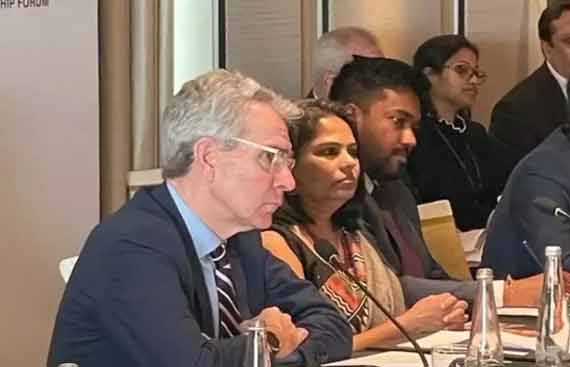US and India Extending their Cooperation in the Civil Nuclear Energy Secto

India and the US are aiming for critical cooperation in the civil nuclear energy sector, per the India-US nuclear pact of 2008.
Global concerns regarding energy security have soared in recent times. An established synergy between the democratic nations of India and the US aims at exploring practical cooperation in the civil nuclear energy sector past the historic agreement, bonded 14 years back, intending for a critical partnership in the area.
As per the India-US nuclear agreement established in 2008, for bilateral cooperation in areas of clean energy including nuclear commerce, talks between the US Assistant Secretary of State for Energy Resources Geoffrey R Pyatt and Indian interlocutors in Delhi are gaining momentum. Mr. Pyatt mentioned India as a crucial partner for the United States, ensuring global energy security to tackle rising disruptions in fossil fuel supplies, in the due course of political instabilities.
Mr. Pyatt served at the US Embassy in New Delhi as Political Counselor from 2002 to 2006 and Deputy Chief of Mission from 2006 to 2007, playing a crucial role in intense negotiations between the two sides on the civil nuclear pact. Narendra Modi’s mission on an incredibly ambitious energy transition goal, the process aims at producing 500 GW of energy from non-fossil fuel sources in future years. Mr. Pyatt also acclaimed his critical focus on developing varied opportunities for future civil nuclear cooperation, instigating the need to work through the surging political issues.
The business model of the civil nuclear industry is transforming critically. Thus, huge commitments to small and marginal reactors that are highly suitable to the Indian environment have been elucidated in recent times. Critical cooperation in the civil nuclear energy sector has often been dodged in past scenarios owing to the differences between the two sides on liability rules concerning seeking damages from suppliers.
The 2008 pact is substantially a significant alliance formed between the two democratic governments. The US Assistant Secretary of State for Energy coined- civil nuclear renaissance, referring to the crucial agreement. New Delhi, the capital nation of India is highly aiming to progress civil nuclear energy cooperation in maintaining the overall bilateral energy ties.
Referring to the US-India energy and climate agenda as the crucial factor globally, Mr. Pyatt underlined the importance of overall energy cooperation between India and the US in forming a major part of the strategic ties between the two sides. He stated that the US is highly determined in establishing a critical synergy with India, addressing arenas like green hydrogen energy.
India has approved the National Green Hydrogen Mission in recent times with a typical outlay of 19.744 crores INR for the development of green hydrogen production capacity leveling up to five million tonnes in the future. Hence, with an established investment of both the US and India in hydrogen space, the regions are highly aiming to leverage their expertise on a mutual note. As a result, joint projects between companies in the nations will bloom exponentially, where India and the US will work on areas of hydrogen fuel cells and scaling up the storage mechanisms for hydrogen energy and green shipping. This holds an accelerated scope in elevating the market revenue.
